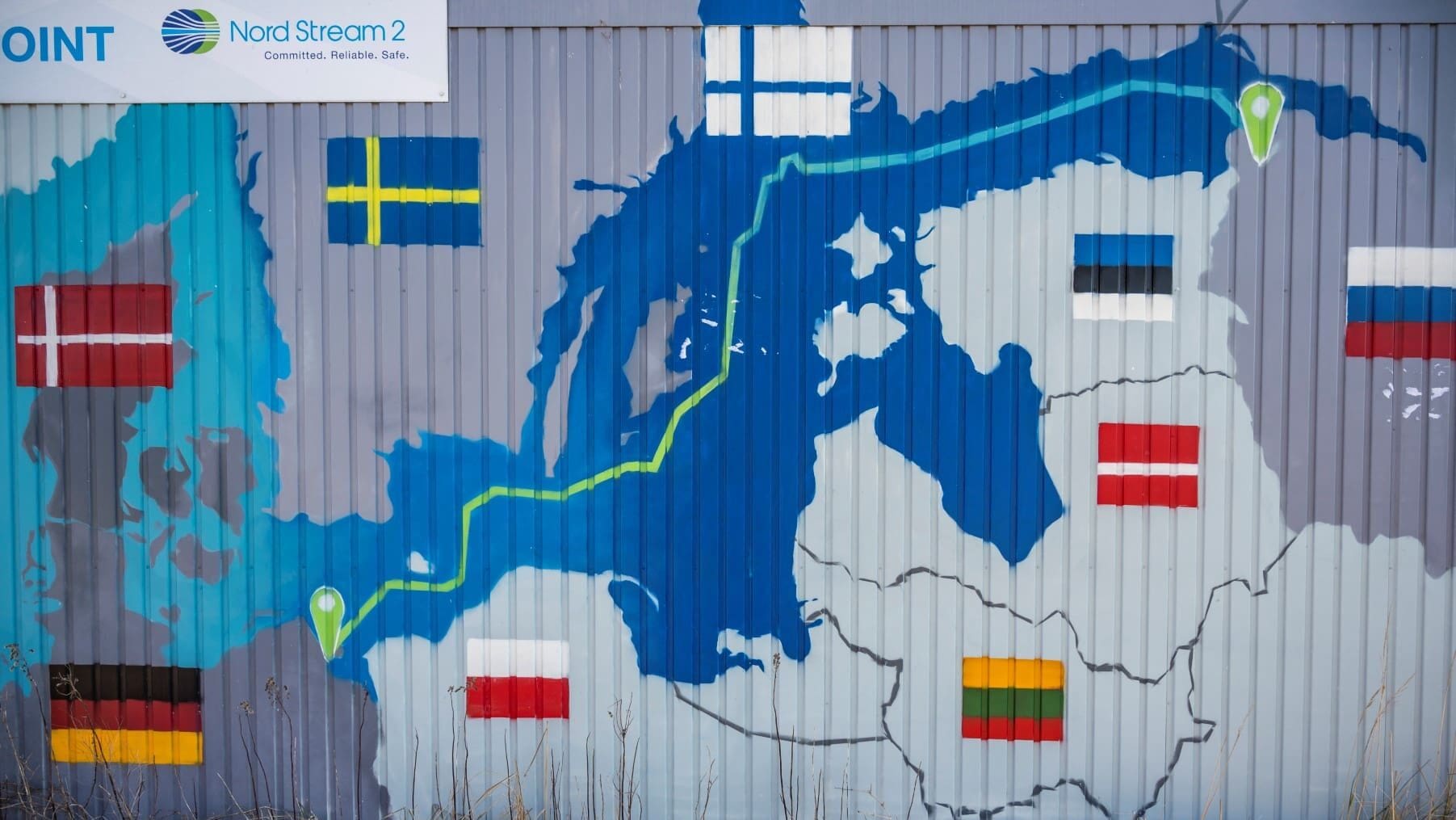
A container decorated with a map of the Nord Stream 2 pipeline.
Photo: John MacDougall / AFP
After identifying the primary suspect allegedly responsible for blowing up the Nord Stream gas pipeline two years ago, Germany issued an international arrest warrant for the diver living in Poland back in June, German media revealed this week.
However, the suspect evaded the authorities by disappearing behind the Ukrainian-Polish border—something that, according to Warsaw, was made possible by Germany’s failure to put him in the wanted persons database for border guards to see.
Three countries—Germany, Denmark, and Sweden—have launched investigations into the sabotage that successfully disabled Russia’s primary gas export route toward northwestern Europe, but the latter two concluded without naming a single suspect or uncovering any meaningful evidence.
Germany, in contrast, was able to find the boat that was likely used in the operation, as well as three Ukrainian nationals suspected to have taken part. They were identified with the help of the boat driver who was approached by the suspects and took them out to their desired location before two of them dived underwater to rig three out of the four pipelines with explosives.
The primary suspect is known only as Volodymyr Z. and has no official connection to the Kyiv government (apart from coincidentally sharing the president’s first name and initials).
He had allegedly been living in a village just outside Warsaw ever since the bombing, until the German authorities issued a European arrest warrant for him sometime in June, sent directly to the Warsaw District Prosecutor’s office. However, Z. was likely tipped off within days and left Poland for Ukraine in early July. His location there remains unknown.
The case against the other two suspects (a married couple from Ukraine) is much less substantial. They both deny knowing Z. and claim they had been on vacation in Bulgaria at the time of the attack. So far, they have evaded having arrest warrants issued against them.
But the main question is how Volodymyr Z. managed to evade arrest and slip through the Ukrainian border so easily. According to Warsaw, Berlin’s failure to do all the required paperwork led to Polish authorities having no legal grounds to detain him, even if they knew to look for him.
“Free crossing of the Polish-Ukrainian border by [Volodymyr Z.] was possible because German authorities… did not include him in the database of wanted persons, which meant that the Polish Border Guard had no knowledge and no grounds to detain [him],” a spokesman for Poland’s National Prosecutor’s office stated.
Apart from the whereabouts of Volodymyr Z., there are further mysteries, such as what happened to the additional members of the sabotage team (earlier reports indicated that Z. worked with five other persons on that day, not just two), as well as to their alleged coordinator, Ukrainian special ops commander Roman Chervinsky.
Chervinsky had been responsible for coordinating several known covert operations for the SBU, Ukraine’s primary intelligence agency, including two failed missions of trying to detain Wagner officials in Belarus and recruiting Russian fighter pilots to fight for Ukraine in exchange for the promise of EU citizenship.
In April last year, just months before allegations against him concerning the Nord Stream sabotage surfaced, Chervinsky was arrested in Kyiv for “exceeding his authority” during a mission, with no further details disclosed. After a year in detainment, he was released last month on an enormous bail of $220,000.
If Chervinsky was indeed the coordinator behind the Nord Stream operation—which is still denied by both him and Kyiv—then it is entirely possible that his arrest also had something to do with it. It is also possible that President Zelensky was intentionally left in the dark while the intelligence agency plotted in the background.
